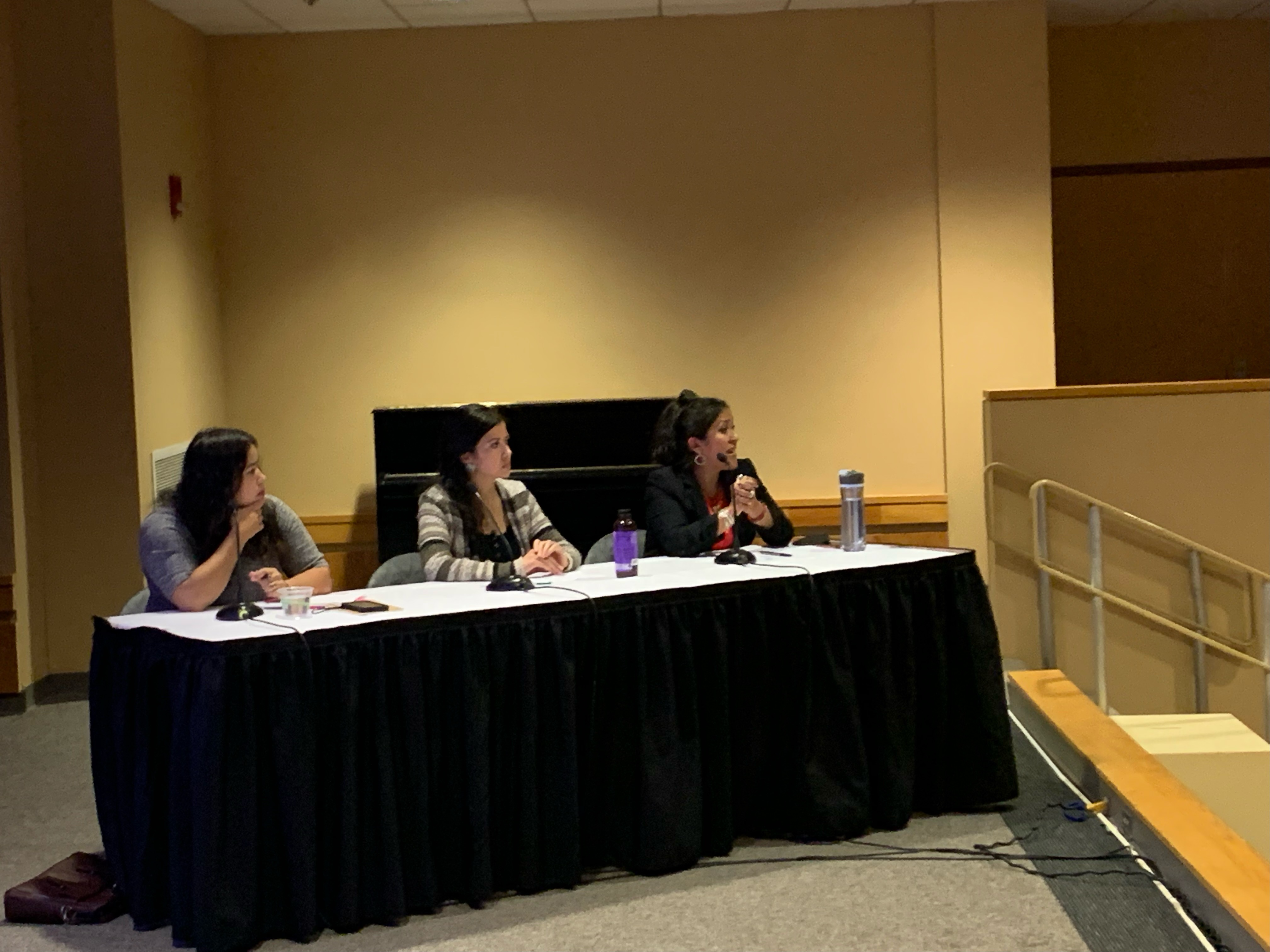
On Monday Oct. 3, Muhlenberg held an event in the “From the Ashes of Relentless Racial Crises: Building a New United States of America” series titled “Interracial Solidarity and Erasures: Latinx Identity and its Intersections” with Melinda González, Ph.D., Leticia Robles-Moreno, Ph.D, and Tiffany Montoya, Ph.D., for Hispanic Heritage Month.
The talk began with an interactive presentation given by González introducing the concept of racial identities, then speaking about Latinx identities. González dedicated this presentation to unpacking Latinx identities, specifically enlightening the audience about who is considered a part of the Latinx community, and then the struggles the community faces today. González led a discussion about the social, economic and political issues facing the Latinx community today, discussing issues such as Latina women making fifty-five cents for every seventy-nine cents a white woman makes and how domestic born Latinx people in America are treated as foreigners.
“If you’re not Latinx, find ways to spend time in that community, listening and learning.”
– Tiffany Montoya Ph.D.
The concluding statements of González’s presentation also served as an introduction to the panel, allowing for more discussions about Latinx identities and for the educational process to continue. Emanuela Kucik, Ph.D., facilitated the discussion for the panel, which consisted of González, Moreno and Montoya, and it was also open to the audience. An audience member asked all three panelists how a member of the Latinx community should go about feeling responsible for educating and advocating for the community in their everyday lives. To this question, González answered that while one should be proud of their identity and share what they feel is comfortable and necessary for them, it is not your job to educate others. The panel concluded with asking all three of the panelists if they were able to give one piece of advice or support to the audience, what would it be?
Montoya responded by saying, “If you’re not Latinx, find ways to spend time in that community, listening and learning.” To this, González responded saying, “Be mindful how you take up space-to those not oppressed. Be authentic. To those oppressed, be joyful. Joy is how we continue to live. Take a class on anything not colonialism.”
In addition to “Interracial Solidarity and Erasures: Latinx Identity and its Intersections,” Muhlenberg commemorated Hispanic Heritage month with different activities and events, including a 90s style Latinx photoshoot, and a day dedicated to culturally Hispanic food in the Wood Dining Commons.
“I definitely enjoy the events focusing on racial identity as it makes me think of my own identity and what I grew up identifying as.”
– Eva M. Vaquera ’23
Eva M. Vaquera ‘23, a member of Muhlenberg Communidad expressed, “Muhlenberg definitely stepped up more so than previous years for Hispanic Heritage Month, but there’s always room for more. I appreciated their effort to have traditional meals representing Latin America in the dining hall. However, it was disappointing it was only one day. I would have liked to have seen more meals from Latin America sprinkled throughout the month.”
When asked about Muhlenberg facilitating and hosting events regarding talks about identity, Vaquera ‘23 responded “I definitely enjoy the events focusing on racial identity as it makes me think of my own identity and what I grew up identifying as. Overall, the talks are insightful and I would argue should be done throughout the semester, so they’re not limited to Hispanic Heritage Month.”
Audience member Giovanni Merrifield ‘23 was asked his opinion on the event, to which he responded, “I really enjoyed the event. One thing that really struck me was how countries that were not colonized by the Spaniards or Portuguese were considered Latin countries. I knew that French derived from the Latin language family, but I just never really considered them part of the Latin language family because it is not included in discussion surrounding Latin colonizers. With that said, I realized that the people of countries such as Martinique, Dominica and Guadeloupe would be considered Latine because they were colonized by the French who derive their language from Latin. The event was really [pro]ductive and wonderful.”
Shinam ‘25 is a political science and sociology major at Muhlenberg. She is immensely excited to be apart of the Weekly staff! When she isn’t writing, she can be found reading a book or watching a comfort show with her favorite fast food!






















